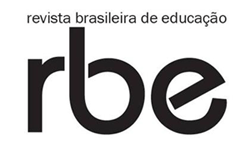We have analyzed the principle of alternation in the MST pedagogical practices, adopted by the National Program of Education in Agrarian Reform, in order to know - assuming those practices interpolate the attempt of pragmatism to harmonize individuals and society - how this principle can produce "creative" individuals. The methodology articulates Maingueneau, Laclau and Mesquita. We have built four categories (power elevation; necessity of establishing relations with institutional milieus; tension with these milieus; ideological desire of universalization) and three analytical dimensions (methodology; spatiality; finality). Within this methodology, we have analyzed two MST documents (one public and one restricted to MST), four interviews (3 members and a teacher), as well as scientific articles by intellectuals involved with MST. We have concluded that to conduct creatively the experience means to break with the cumulative notion of principles.
MST; experience; alternation; knowledge production
